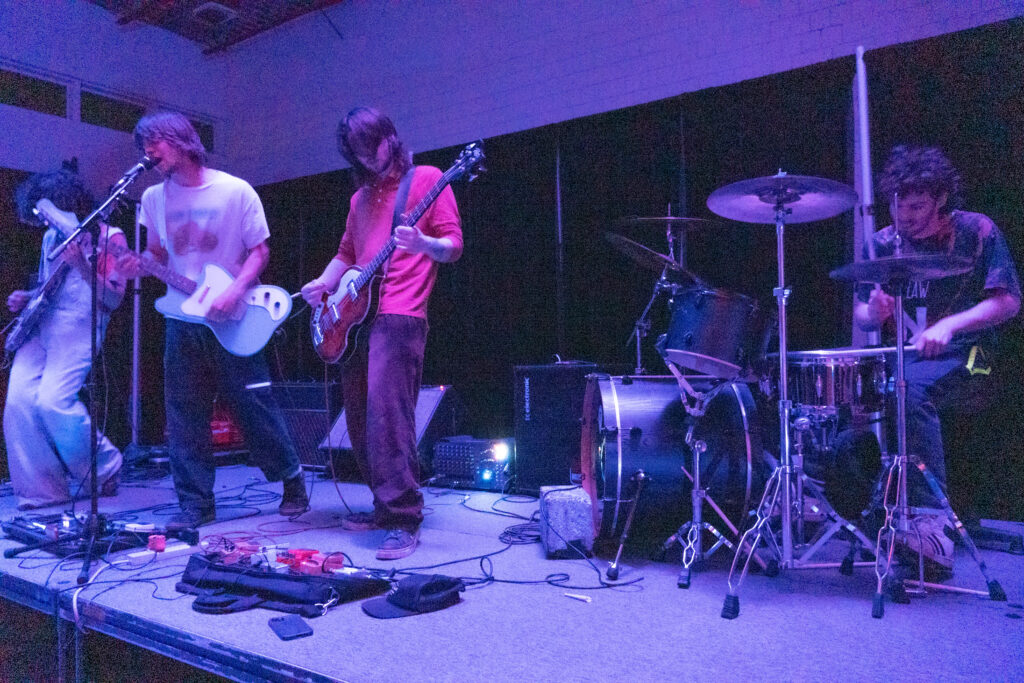
Photo courtesy of Dr. Cristina Palmer from Phillips Exeter Academy
By Ava Hult-Falk ’27
Chaperoned by Humanities teacher Mr. Jim Davidson and Fifth-form Dean Ms. Aliya Cox, a cohort of Choate students participated in Phillips Exeter Academy’s Sexual Violence Awareness Summit on April 12. The event hosted eight schools and offered students and faculty the chance to hear from speakers, participate in discussions to understand sexual violence in the context of schools, and create positive change.
Mental health counselor Jenna Kaufman focused her opening speech on navigating trauma in the aftermath of sexual violence, dissecting their psychological and physiological effects. She shared the common coping mechanisms and manifestations that often follow an act of sexual violence and encouraged survivors to reclaim their agency.
Participants then heard from Chanel Miller, acclaimed author of Know My Name and a survivor of sexual assault. Miller used the power of storytelling to facilitate her personal healing journey and encouraged others to do the same. Monicke Costa ’25 took away the need to destigmatize discussions about sexual assault: “We learned that even talking about [sexual assault] helps prevent it. If we mimic what to do when a situation is happening, we are more likely to walk away with control of ourselves and the situation,” she said.
Next, Director of Institutional Equity at Indiana University Southeast James Wilkerson spoke about how toxic masculinity perpetuates cycles of sexual violence and anguish among men. “He was talking about … how men bottle up their emotions. He talked about this concept of a cup of emotions and those emotions overfill the cup, and that’s when men are led to have violent outbursts against women, in this case, sexual assault,” Costa explained. “Addressing that root cause [is necessary] … so that we can prevent these cup overfill moments from happening.”
Kenyora Parham, the Chief Officer of End Rape On Campus, and Princeton University professor Shamus Khan spoke together about the concept of intersectionality and how it influences our understanding of and response to sexual violence. Drawing on the interconnectedness of race, class, gender, and sexuality, they shined a light on the systemic inequities that perpetuate cycles of victimization and marginalization within sexual violence crimes. Parham and Khan underscored the importance of hearing every victim’s story of sexual violence, regardless of their identifiers, and highlighted the voices of historically marginalized communities.
As the summit ended, students broke into discussion groups while faculty conversed about schools’ policies and shared their ideas for enacting positive change at their schools. “We talked about what the [visitation] policies were at our schools and what our schools are doing to prevent these things [sexual assaults] from happening,” Costa said.
Students realized the importance of changing the way that sexual violence is discussed. “I think normalizing and destigmatizing these conversations where it’s like, ‘No, we shouldn’t talk about that’ to a place where it’s like, ‘No, let’s talk about it, and let’s talk about what we can do to prevent it [is crucial],” Costa said. “Let’s talk about why it makes us uncomfortable, [and] let’s offer support systems so that people who have gone through these things feel more comfortable talking about it and sharing.”
This year’s Sexual Violence Awareness Summit encouraged introspection and advocacy and challenged its participants to confront the epidemic of sexual violence. “It’s always really nice to have some folks who are really out doing the work in the world, to be able to get their perspectives and deeper understanding to deliver to our students in the classroom,” Ms. Cox reflected. “It seems like everyone took a great deal from it.”



